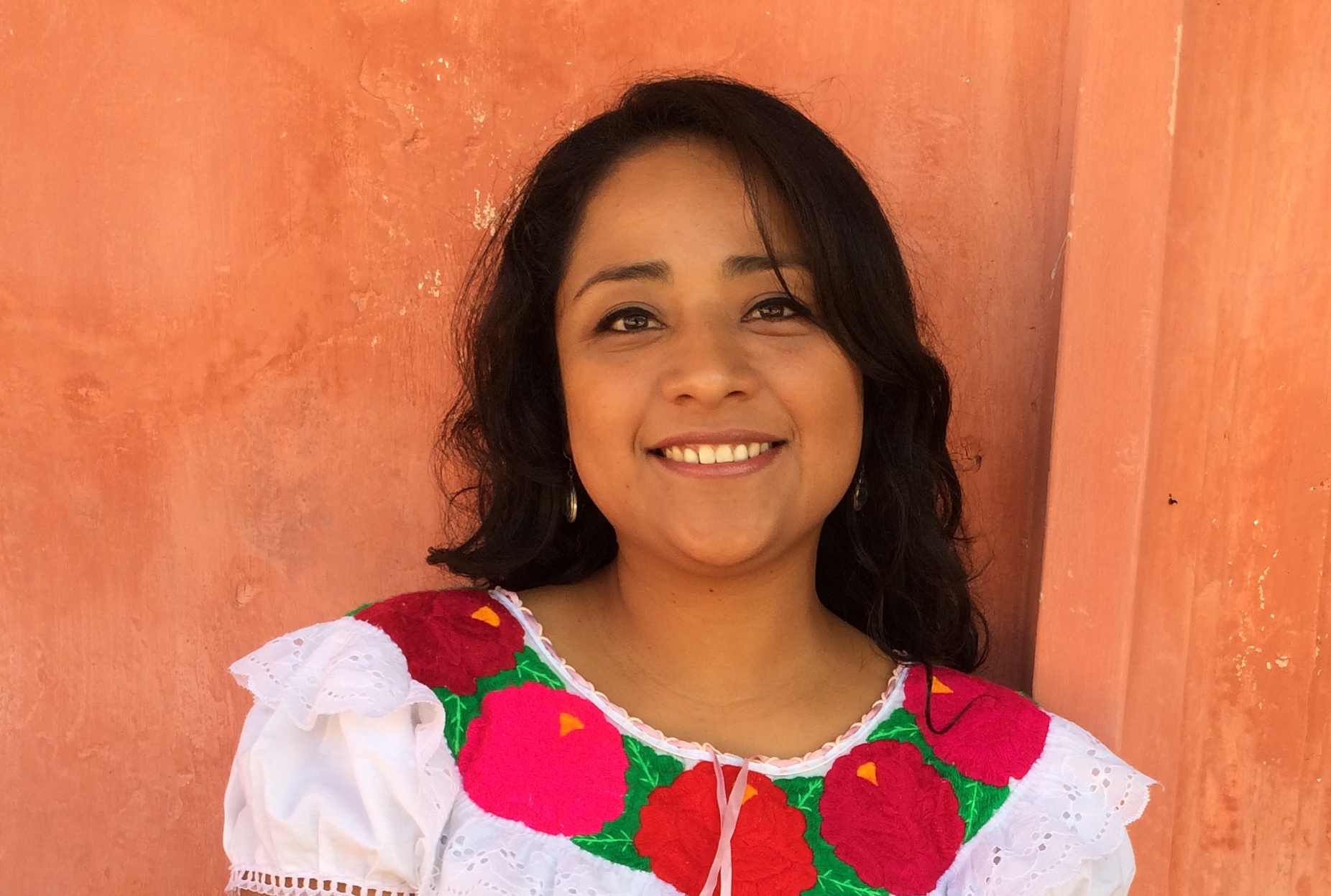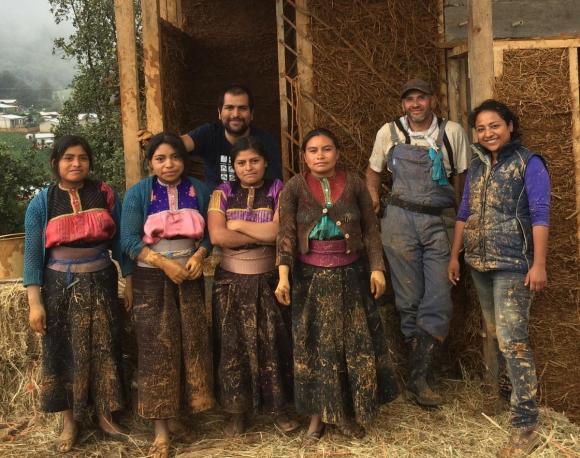This success story written by Wendy Nicolas-Morales,a Gender in development specialist , is part of the "Young women and Youth's Gender Perspectives in Agricultural Development" series that spotlight young professionals' experiences for women's empowerment in agricultural development. From research to private sector, mass media to civil society work, YPARD 2015 Gender series features, every month, young "gender champions" from different regions of the world. This series is part of YPARD work as special youth catalyst in the GAP : Gender in Agriculture Partnership.
My name is Wendy Nicolás-Morales and I am from Mexico. I studied mybachelor’s degree in the Universidad Autónoma Chapingo and later on obtained the master degree in the Agris Mundus program on Rural Development and Food Security.
This success story written by Wendy Nicolas-Morales,a Gender in development specialist , is part of the "Young women and Youth's Gender Perspectives in Agricultural Development" series that spotlight young professionals' experiences for women's empowerment in agricultural development. From research to private sector, mass media to civil society work, YPARD 2015 Gender series features, every month, young "gender champions" from different regions of the world. This series is part of YPARD work as special youth catalyst in the GAP : Gender in Agriculture Partnership.
My name is Wendy Nicolás-Morales and I am from Mexico. I studied mybachelor’s degree in the Universidad Autónoma Chapingo and later on obtained the master degree in the Agris Mundus program on Rural Development and Food Security.
After graduation at the beginning of 2014, I moved to south of Mexico, San Cristóbal de las Casas, to continue working with The Hunger Project – Mexico (THP-Mexico) as well as coordinate the programs in the region.
The Hunger Project
The Hunger Project (THP) is a global organisation that works to end hunger and poverty by pioneering sustainable, grassroots, women-centered strategies and advocating for their widespread adoption in countries throughout the world. In Mexico, THP works at the local grassroots level and at the national level to promote family agriculture, community-led development and to highlight the role women have in agriculture and rural development.
At the national level, THP coordinates the Mexican Family Farming Network where we promote family agriculture as a key solution to achieve food security and sovereignty. In Chiapas, I coordinate four programs that focus on sustainable rural development, nutrition, income, and youth leadership. Currently we work with tsotsil women in three indigenous villages and with one cooperative of artisansin the highlands region of Chiapas. The highlands is a diverse region, both culturally and ecologically, but with high levels of poverty. Women are in charge of taking care of their children, the house and the kitchen. In addition, they grow some crops and raise chickens and sheep. Sometimes they make textiles which are sold in the city and it represents a significant and important source of income. Although, women have lots of responsibilities in the household, they do not participate significantly in the decision making process in the villages. Nonetheless, women’s participation in decision-making can have a significant impact on their lives, and the lives of families and communities. As such, I would like to share my experiences working with two groups of women from different villages, the challenges they face when they take on different roles and how women can work together to achieve a self-reliant life.
Bayalemho Mexican Women working towards a self-reliant life
In rural villages women are used to cooking with traditional stoves that use firewood as the main fuel. Last year women from Bayalemho, a small village in the municipality of Larrainzar, realised that the traditional stove was not only affecting their health but also, it had an impact on their forests. In addition, getting firewood nowadays is difficult and expensive. This is where THP comes in.
Our organisation and a group of twenty-four women started a project to improve the cooking conditions but respecting the traditional way of cooking. First, the women, with a partner organisation (Water for Humans), designed the kind of stove, they needed which was extremely important. Although there are many kinds of stoves that the organizations or the government give to communities, these stoves are rarely used as they are not adequate to people’s needs. The second step was to test the technology designed in a pilot. Once the stove met the right expectations - technically, sustainably and culturally- we looked together for a grant to buy the materials needed for building the stoves. This was a challenge since the women and the THP team needed to develop experience and training to fundraise together. However, after some months, we obtained the funds to build the stoves and collectively, the group of women decided that their daughters and sons could build the stoves and were trained by a group of other indigenous partners from the Mazateca region where THPalso works. In that region the stove had been successfully tested and constructed throughout villages. We started the construction process with everybody’s participation and some stoves are ready to improve the quality of women’s life
To launch the project, the biggest challenge, was looking for women who wanted to learn how to build a stove. For a while, we were met with silence due to gender biases and expectations and questions like these were asked: “who will cook while we are building stoves?”
“We are women and we are not fit for those activities, we are not capable of learning”.
At the same time, the women were faced with their husband’s objections. They claimed “women do not know what they want, they are wasting their time, it is not possible to work together in this village, and we do not have time for this”
Building smart toilets with Chamula Women
Simultaneously, we were working in another village called Catixtic, in the Chamula municipality. Even though is very close to the first village, it seems like travelling to another world, a very traditional community. Sometimes men get to marrymore than one woman hence some households end up with no present husband.
The Chamula women are the strongest women I have ever met; besides doing all the housework, raising animals and making handcrafts, they also work the land and carry firewood. In this traditional village there is a small group of women that decided to work to improve their houses as they do not have proper toilets and showers, which in turn has placed them in an uncomfortable and unsafe position. After many sessions of planning possible house improvements, the women decided to build the best toilet ever.
Starting with the design process, we first asked women what kind of toilet they needed and they answered that they wanted one where you couldflush with water. It is common that in rural areas people want to copy the sanitations system from the big cities because that represents the idea of development. Nonetheless, the urban solutions are not always the most sustainable for the environment. First, we did a participatory sanitation diagnosis to identify main contamination points and the water points. Through this, women saw the risk of contaminating the main sources of water in the village and the importance to complete the nutrient cycle. Nonetheless, they were not convinced of using a dry toilet. This necessitated we visit other places with similar experiences to see how composting and dry toilets work. At the same time, our community partners talked with other women and men who have been using alternative toilets successfully. After gathering the information and comparing the pros and cons, the women decided to design their own bathroom with a toilet and a shower room. We looked for experts on natural construction,invited volunteers and experts to work with us and build with us. The women named the toilet a “smart toilet” and it marked the start of a great adventure…building the women’s prototype of the smart toilet.
In most places in my country, construction is only a male activity and as such, at the beginning women were not really convinced to take this challenge. It took time for them to learn to use tools and climbing a ladder to buildthe roof was the hardest task because of the skirts women wear in the region. However, being an innovative lot, they found a way to manage it. In the course of the construction process we invited our partners from the other villages to share their experience and help as volunteers.
This month, the most beautiful, eco and smart toilet is ready to be tested after three months of hard work and the commitment of many people. Building a toilet was not just a way to meet a basic need but a way to empower women to learn and create innovative things and believe they can do anything.
These two experiences allowed women work together, inspire each other and assume different gender roles. On one hand, the experiences shifted the social structures that perpetuate gender inequality and on the other hand, this helped women continue to build a healthy, fulfilling life of self-reliance and dignity.
Finally, these experiences represent my commitment of what I really want to do in my life and I feel glad to have the opportunity to match my personal mission with a great job.





